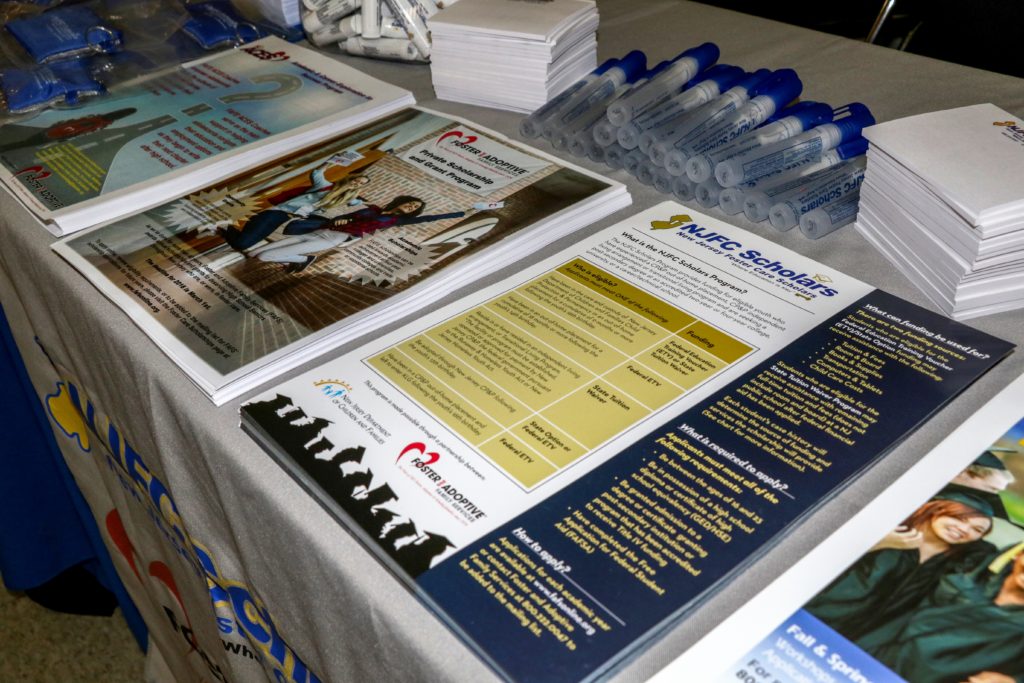Tag Archives: college and foster youth
NJFC Scholar Spotlight: Sophia Orama
Whether it’s something trivial like tying a shoe or something major like choosing a college, most children have their parents to turn to whenever they need help. However, for kids in foster care, that parental support is often not there. In the case of Sophia Orama, a New Jersey Foster Care (NJFC) Scholar, she had to be the one providing support.

With an alcoholic mother and an absentee father, Orama was forced to become the caretaker of the household. “I stayed with her [my mother] for many years because I was the one that was taking care of her,” Orama said. “It wasn’t until the time that I was 16 and I was a junior in high school and I was like, ‘I got to start thinking about myself,’ because college was coming up.”
Continue reading
Foster Care Costs: What Happens When Children Aren’t Adopted?
For teens across the country, their eighteenth birthday is a major milestone – as these children reach the age of majority, they find that suddenly they can call themselves adults. As discussed in the previous article, “Help Needed For Youth Aging Out Of Foster Care In America,” for 23,000 US teens aging out of foster care each year, crossing the threshold into adulthood often comes with challenges and responsibilities. These adults-by-law are still vulnerable youth who have a lot of learning to do, but without the support structures that other youth outside of the child welfare system have, it can become easy for them to lose their way.

Increasingly, states are moving to raise the age limit for children in foster care in order to help them maintain the systems of support they need to succeed after they turn eighteen. As child welfare systems across the country continually update their ideas and infrastructure to provide positive outcomes, there is a debate over how money should be invested. How much, exactly, does it affect foster care costs when a child is not adopted?
Continue reading
New Jersey Foster Care Scholar Success Story: Jacob Tucci
When teenagers think of turning 17, many probably think about getting their license, their first car and who they are taking to prom.
When Jacob Tucci looks back at being 17, he’s reminded of the year he entered the foster care system.

“It’s hard to think that I entered the foster care system so late,” Jacob says, “because there are other kids that enter the foster care system at such a young age, but I don’t think there’s a right time to have that happen.”
Continue reading
Making the Grade: Foster Youth and College
Without dramatic changes and a structured approach, the college graduation rate for students who have lived in foster care will remain one of the lowest in the country at 3 percent, according to a recently released study from the University of the Pacific.
The study examined seven foster youth’s experiences over a nearly three semester journey through a California community college. It concluded that there was an extreme lack of guidance for foster youth, a problem given that many youths in care are dependent on structured institutional programs.
“Simply having a dedicated person whom foster youth can go to and ask questions — something many of these young people have never had — could really make a difference to their college success,” said study co-author Melinda Westland.
Foster Youth and College: NJFC and Project MYSELF
While the issue of guidance may be a problem nationally for youth who have lived in foster care, New Jersey does provide places for these youths to go and get answers. The New Jersey Foster Care (NJFC) Scholars Program provides financial and educational assistance for eligible youth while also supplying a supportive coaching relationship through Project MYSELF. Continue reading


